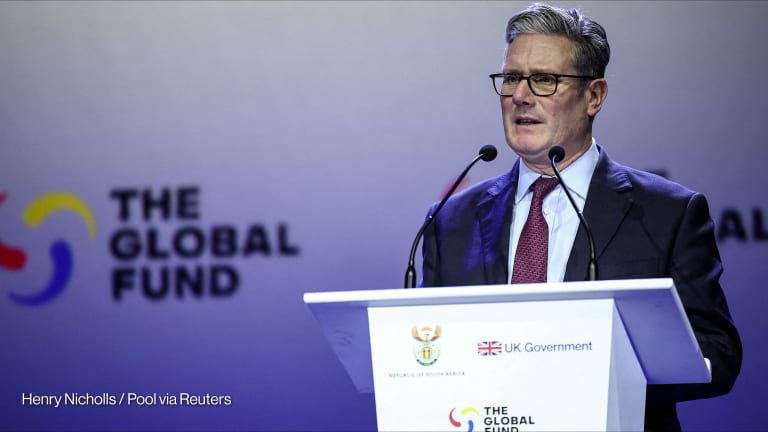
The United Kingdom and Italy finally pledged their financial support to The Global Fund to Fight AIDS, Tuberculosis and Malaria, bringing the total raised for its latest replenishment drive to $15.7 billion two months after it fell short of hitting its target.
The two nations, among the fund’s biggest historical donors, had delayed their support during the pledging conference in New York in September. The final tally of contributions back then came to $14.25 billion, well short of the $18 billion goal, raising fears that it could hobble the fight against the three diseases.
The latest commitments, along with India’s and Thailand’s, have helped grow the pot for the Global Fund for the next three years. The U.K pledged £1 billion ($1.176 billion), while Italy plans to give €185 million ($183.81 million). India will give $25 million and Thailand has now pledged $3 million, according to figures released by the Global Fund. The amount that Britain pledged is less than it committed in 2019 while Italy’s is slightly more, data shows.
“A remarkable achievement, especially in the context of a tough global economic environment,” Donald Kaberuka, the Global Fund Board’s chair, said in a statement.
Despite failing to secure the $18 billion it had originally set for its seventh replenishment, the amount the Global Fund raised this year exceeded what it raised in the previous cycle.
The fund’s board said on Friday that it had approved in-country allocations of $13.2 billion to 120 nations to support them in their fight against HIV and AIDS, tuberculosis, and malaria. An additional $518 million will be directed towards what it described as catalytic investments.
The U.K. and Italy’s failure to initially declare their pledges in September raised concerns that countries would have to make due with less cash to fight the three diseases that affect millions of people worldwide.
The absence of funding from the U.K. and Italy could have affected the $6 billion that the United States would have eventually been able to donate, according to Peter Baker, policy fellow and assistant director of global health policy at the Center for Global Development. U.S. law prohibits the government from giving more than one-third of the Global Fund’s budget.
The contributions from Italy and the U.K. may go a long way towards easing those fears.
“Impressive commitment by stakeholders,” said Dr. John Nkengasong, the head of the U.S. President’s Emergency Plan for AIDS Relief, or PEPFAR. “It's the largest-ever investment for the fight against HIV/TB/malaria.”
The Global Fund also said that it will extend its COVID-19 response funding mechanism until the end of 2025.
“To allow countries to invest the remaining funds in line with their evolving priorities as they continue responding to COVID-19, mitigating the pandemic’s impact on the three diseases, and strengthening systems for health and pandemic preparedness,” it said in the statement.
The Global Fund’s COVID-19 response has raised close to $5 billion since its creation in April 2020 and spent $4.4 billion to help countries in their fight against the pandemic.
Climate change, soaring inflation, conflict, and economic uncertainty fuel infectious disease threats, said Peter Sands, the executive director of the Global Fund.
“Most conflicts kill more people through infectious disease than by bullets and bombs. Extreme weather events lead to upsurges in diseases like malaria. People who are hungry or cold succumb more quickly to deadly diseases,” he said. “The Global Fund is literally a life-saver, a partnership to protect those most at risk and build healthier, more inclusive communities.”








